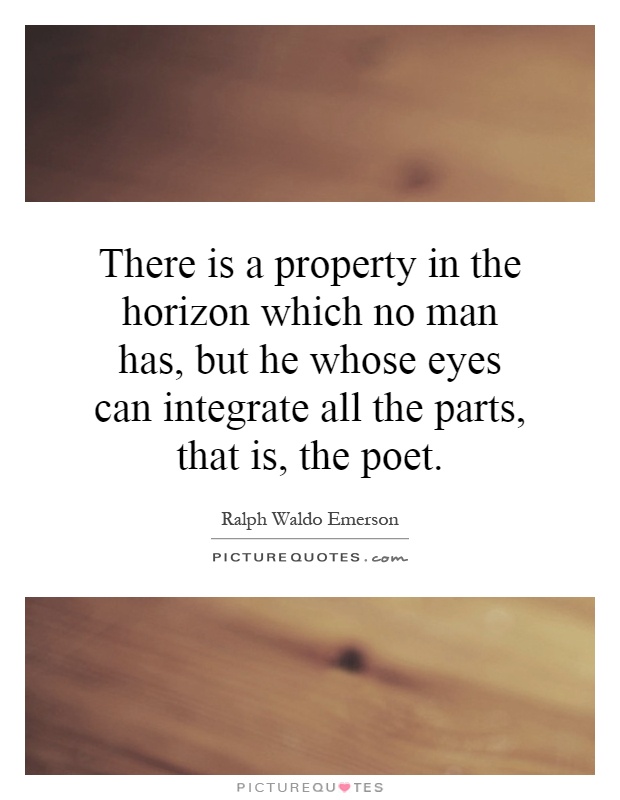There is a property in the horizon which no man has, but he whose eyes can integrate all the parts, that is, the poet

There is a property in the horizon which no man has, but he whose eyes can integrate all the parts, that is, the poet
Ralph Waldo Emerson, a prominent American essayist, lecturer, and poet, was a firm believer in the power of the poet to see and understand the world in a unique way. In his essay "The Poet," Emerson explores the idea that poets possess a special ability to perceive the beauty and truth in the world that is often overlooked by others.Emerson argues that the poet is able to see a "property in the horizon" that is invisible to most people. This property represents a deeper understanding of the world, a connection to the divine, and a sense of unity with all of creation. The poet's eyes are not limited by the constraints of everyday life, but instead are able to integrate all of the parts of the world into a cohesive whole.
Emerson believed that the poet's ability to see this property in the horizon was a gift that set them apart from other individuals. While most people are preoccupied with the mundane details of daily life, the poet is able to see beyond the surface and perceive the underlying beauty and meaning of the world. This heightened awareness allows the poet to create works of art that inspire and uplift others, helping them to see the world in a new and profound way.
For Emerson, the poet was not just a creator of beautiful words, but a visionary who could help others to see the world in a new light. By tapping into their innermost thoughts and emotions, poets were able to express universal truths that resonated with people from all walks of life. In this way, the poet served as a bridge between the physical and spiritual worlds, helping to connect individuals to a deeper sense of meaning and purpose.












 Friendship Quotes
Friendship Quotes Love Quotes
Love Quotes Life Quotes
Life Quotes Funny Quotes
Funny Quotes Motivational Quotes
Motivational Quotes Inspirational Quotes
Inspirational Quotes